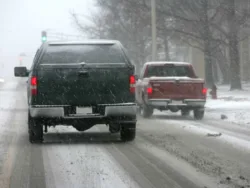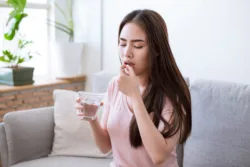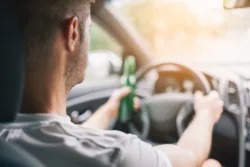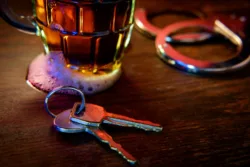Preventing DUIs During the Holidays

During major holidays, people throughout the country increase their alcohol consumption, and Pennsylvania is no exception. According to the Pennsylvania DUI Association, 10% of all holiday crashes in 2018 involved alcohol use, and 41% of deaths on holiday weekends were related to alcohol use.
Why is there such an increase in DUIs and alcohol-related crashes this time of year? Here are some possible underlying reasons to consider.
The Emotional Toll of the Holiday Season
Although we like to think of the holidays as a time of joy and connection, the reality is that this season brings a lot of negative emotions with it. Stress, loneliness, anxiety and depression can pile up and take an emotional toll.
These feelings may come from a variety of sources: pressure to give the perfect gift, debt from Black Friday shopping, conflicts with relatives, lack of meaningful relationships, and even the effects of shorter days and colder weather. When faced with all these difficult emotions, many people turn to substances to cope.
Grief and Loss
Anyone who has lost a loved one knows how painful the holiday season can be. Traditions that once evoked nostalgia now evoke sadness. Festive gatherings only serve as a reminder of the loved one’s absence. For many people, alcohol can be a way to cope with overwhelming grief.
Different types of loss can also cause pain around this season. For example, divorce or the end of a relationship, job loss, or major life changes (such as moving to an unfamiliar city) can all serve as a trigger for alcohol abuse.
Underlying Mental Health Conditions
For those with mental health conditions, the holidays can be especially difficult. An individual with social anxiety may dread going to parties. Someone suffering from depression can find it hard to “get into the holiday spirit.”
Seasonal Affective Disorder (SAD) is a unique mental health disorder that usually occurs around the fall and winter months when the sunlight decreases (although it can also occur during spring and summer). SAD can contribute to an individual’s alcohol consumption during this time of year.
Especially problematic are underlying substance use disorders. The holidays can help hide this condition, since heavy drinking is seen as “normal” and “festive,” rather than a problem to be addressed.
DUIs as an Opportunity for Self-Improvement
Being charged with a DUI comes with a variety of legal consequences, but it can also be an opportunity to discover something that needs to be addressed. An individual might need to learn healthier coping skills for daily stressors, or might even have an undiagnosed mental health disorder that they’re trying to self-medicate. Either way, anyone charged with a DUI should consider getting outside help. Talk to a doctor or seek out a therapist to explore underlying reasons for drinking.
If someone has a history of multiple DUIs, it could be that they have a substance use disorder. In that case, the problem won’t go away on its own, and they should seek professional treatment.
Tips to Prevent Binge Drinking and Drunk Driving
Regardless of an individual’s reasons for consuming large amounts of alcohol, the main takeaway is that binge drinking and drunk driving are major problems with potentially life-threatening consequences.
Here are some ways you can protect yourself and your loved ones from alcohol overconsumption and driving under the influence:
- Set a firm limit on the number of drinks for yourself when you go to a party.
- Consume drinks slowly, being mindful of how they taste and how the alcohol is affecting you. This will help you enjoy each drink more, and it will also help you monitor your level of impairment.
- Practice staying present and in the moment at parties or family gatherings. Deliberately find things to appreciate, even if you’re not entirely happy about being there.
- Make a pledge to yourself and loved ones to never drink and drive.
- Before you leave for the night, create a plan for how you will get home safely. You might appoint a designated driver, call a family member to pick you up, or rely on a taxi or ridesharing service.
- Help your friends create a plan for getting home. Don’t leave them at the party without a ride; pay for their taxi/rideshare if need be.
- If you’re currently in recovery from a substance use disorder, avoid alcohol entirely. Practice your positive coping skills, bring a sober friend to parties, and make an escape plan in case you feel your sobriety is being threatened by the holiday gathering.
By being responsible for ourselves and helping our loved ones and friends, we can reduce the number of DUIs and alcohol-related crashes in our community. That may be the best gift of all this holiday season.
If you’re concerned about your level of drinking or think your loved one may have an alcohol use disorder, call Rehab After Work at (610) 644-6464 to discuss our outpatient treatment programs.








